Watercolor course
"Drops on glass"
Do you want to learn how to paint drops and water in watercolors? Convey the effect of an image “behind the glass” and be able to create realistic drops from your imagination? Are you ready to work hard to master skills that will stay with you for a long time? Then this course is for you
About the course
This course is suitable for those who are already familiar with watercolor techniques. Thanks to 4 lessons: 1 theoretical and 3 more practical, you will learn to realistically depict water, drops and streams of water on glass, create the effect of “glass”, and a landscape in the background in the haze. During the course, in addition to watercolor techniques, you will learn what types of drops there are, what their structure and shape look like, how reflections change in them, so that after the course you can realistically come up with your own drops and successfully apply all the acquired skills in independent watercolor works.
Works,
which we will complete on the course
Course teacher
Brand Friend Winsor&Newton
Member of the Union of Watercolorists of Russia. Member of the Association of Plein Air Painters of Russia.
Creator of the book “Watercolor for Adults”.
From 2017 to 2022 she conducted more than 37 plein airs in 17 countries. (Great Britain, Austria, Spain, Italy, France, the Netherlands, Nepal, India, Georgia, Montenegro, etc.)
Anastasiya Kustova
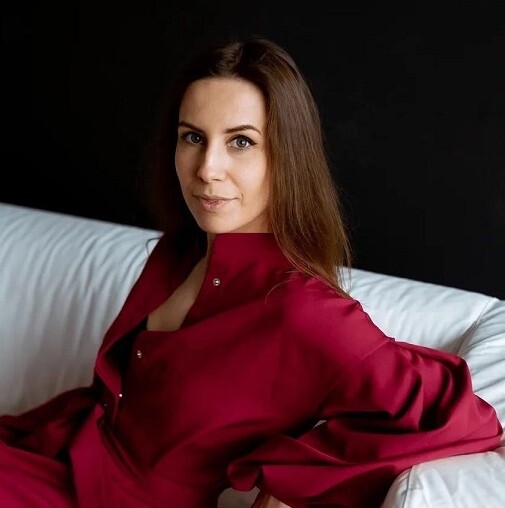
Course program
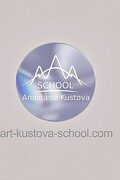
Greetings
course content
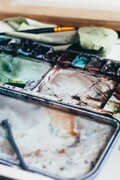
Introductory lesson. Materials
In this lesson I will tell you what materials you will need in the course. What analogues of paints and paper can you use. We will look at working with masking liquid and how liquids from different brands differ from each other.
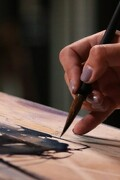
1 lesson. Theory of depicting drops and water in watercolor
This is the most important lesson of the course! It is important for me that you understand the principles of depicting drops and water. The following lessons will help you practice this theory and consolidate it into a thousand drops. But it is theory that will help you understand the material and subsequently carry out your own work on this topic consciously and thoughtfully. I will teach you not to copy an image, but to create drops based on their type, location, and thereby create your own unique work with a thoughtful composition.
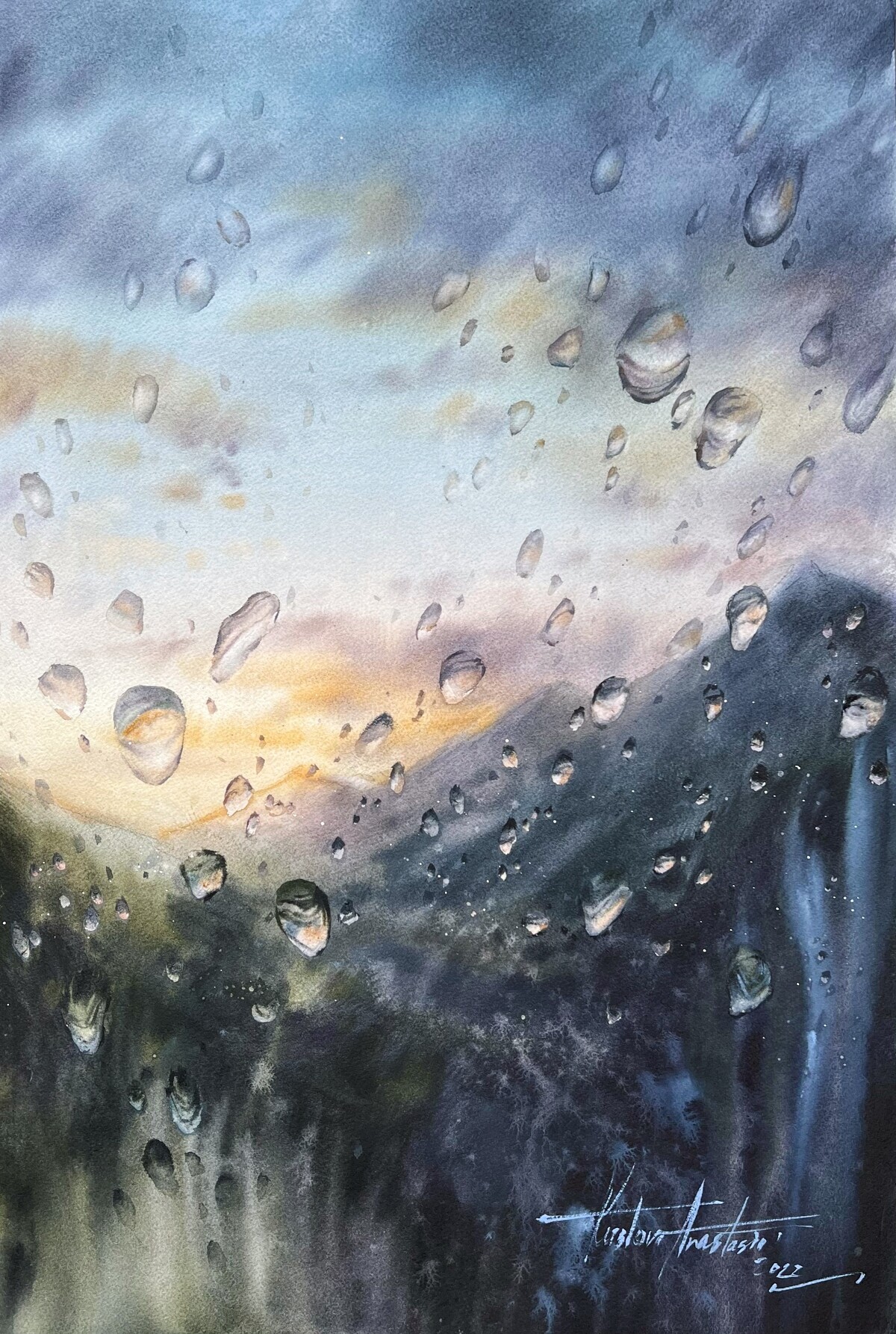
Lesson 2. Mountains after rain.
In the first practical lesson of the course, we will draw a beautiful mountain landscape with drops on the glass of a cable car cabin. The rain has already stopped, so we will analyze how to draw drops without strong dynamics - large and static. You will understand why they should not be perfectly round, as well as how a photo of drops will differ from a picture with drops and how to avoid basic mistakes in the image. You will also master working on a sheet moistened on both sides, combining it with dry watercolors.
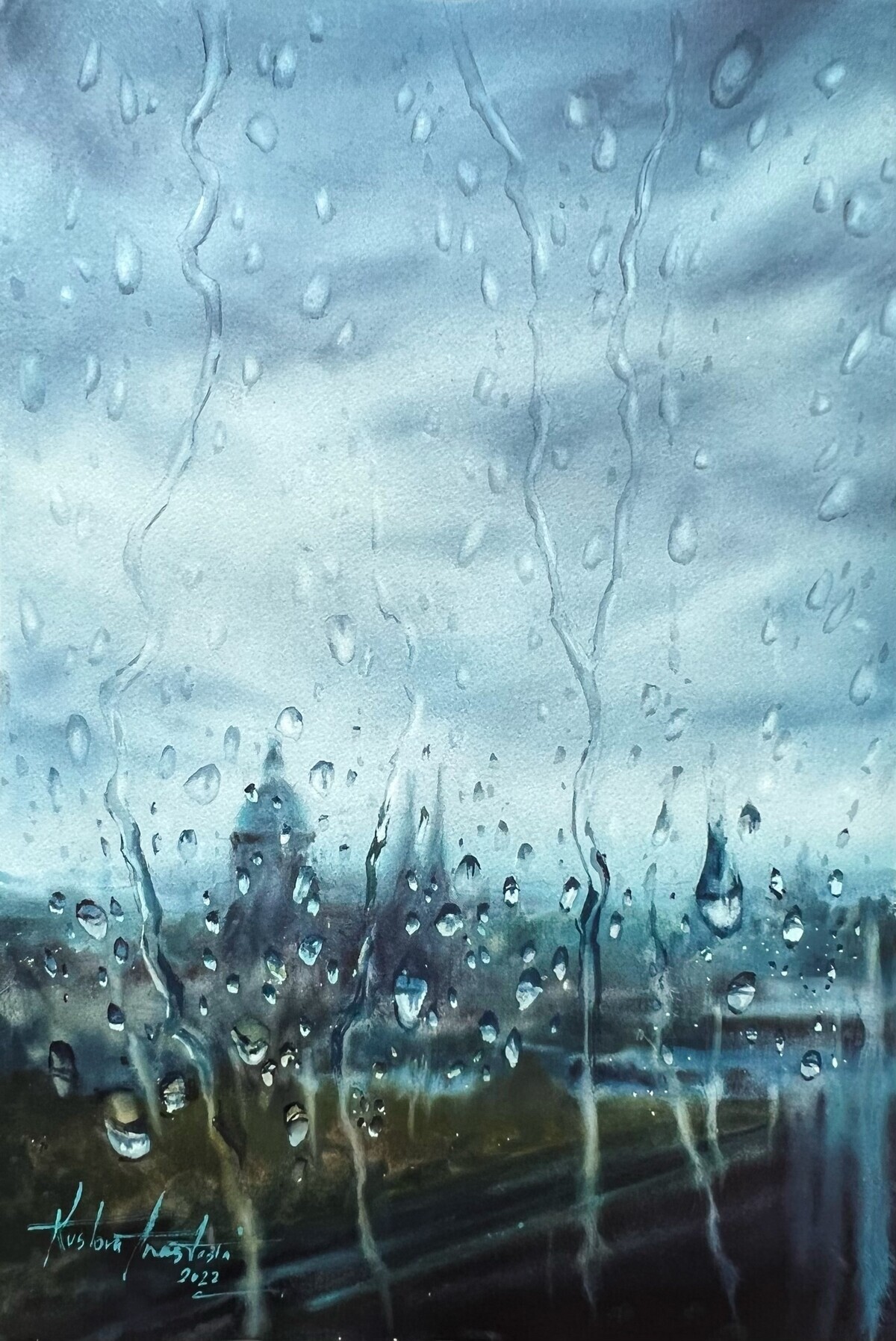
Lesson 3 Rain in Amsterdam
In this practical lesson we will show you how to draw a cityscape behind glass. How to realistically create jets of water and “hanging” drops, ready to rush down at any moment. We will look at one of the main techniques - creating a general feeling of the landscape “behind the glass”.
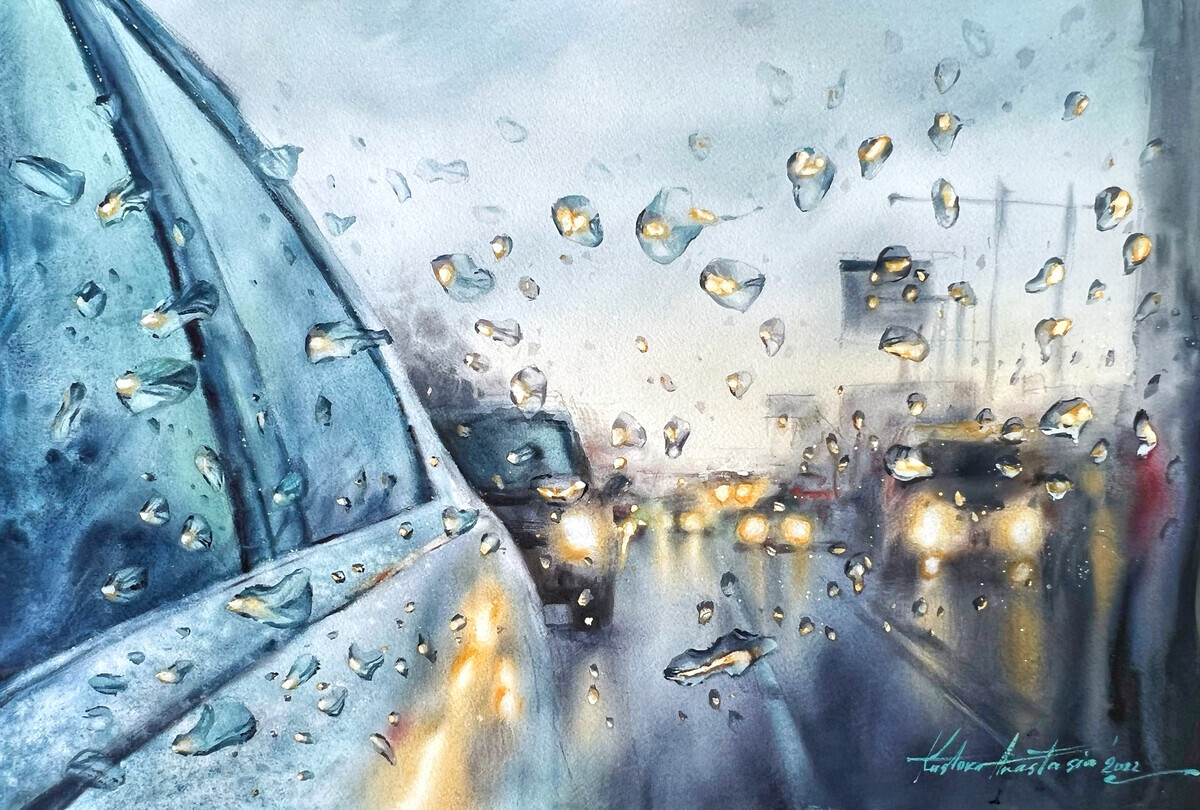
Lesson 4 Drops and glare
In the most time-consuming lesson of the course, I recommend that you be patient and learn to break the work into stages. We will work with you “piece by piece”, immediately filling out a fragment of the work in the desired tone and color without multi-layering. It is on this principle that I carry out my large works. This is a very important training in understanding what tone you have achieved and what result you will see when drying on paper. I recommend doing this lesson several times until you get it right. And, of course, we will analyze the creation of the most complex drops - with highlights in them. Let's understand where it is necessary to use masking fluid, and where it is better to avoid it. You will learn in practice how reflections of glare spread and write realistic work. There will also be reflections of headlights on the asphalt, analysis of color and tone, and a lot of interesting things.
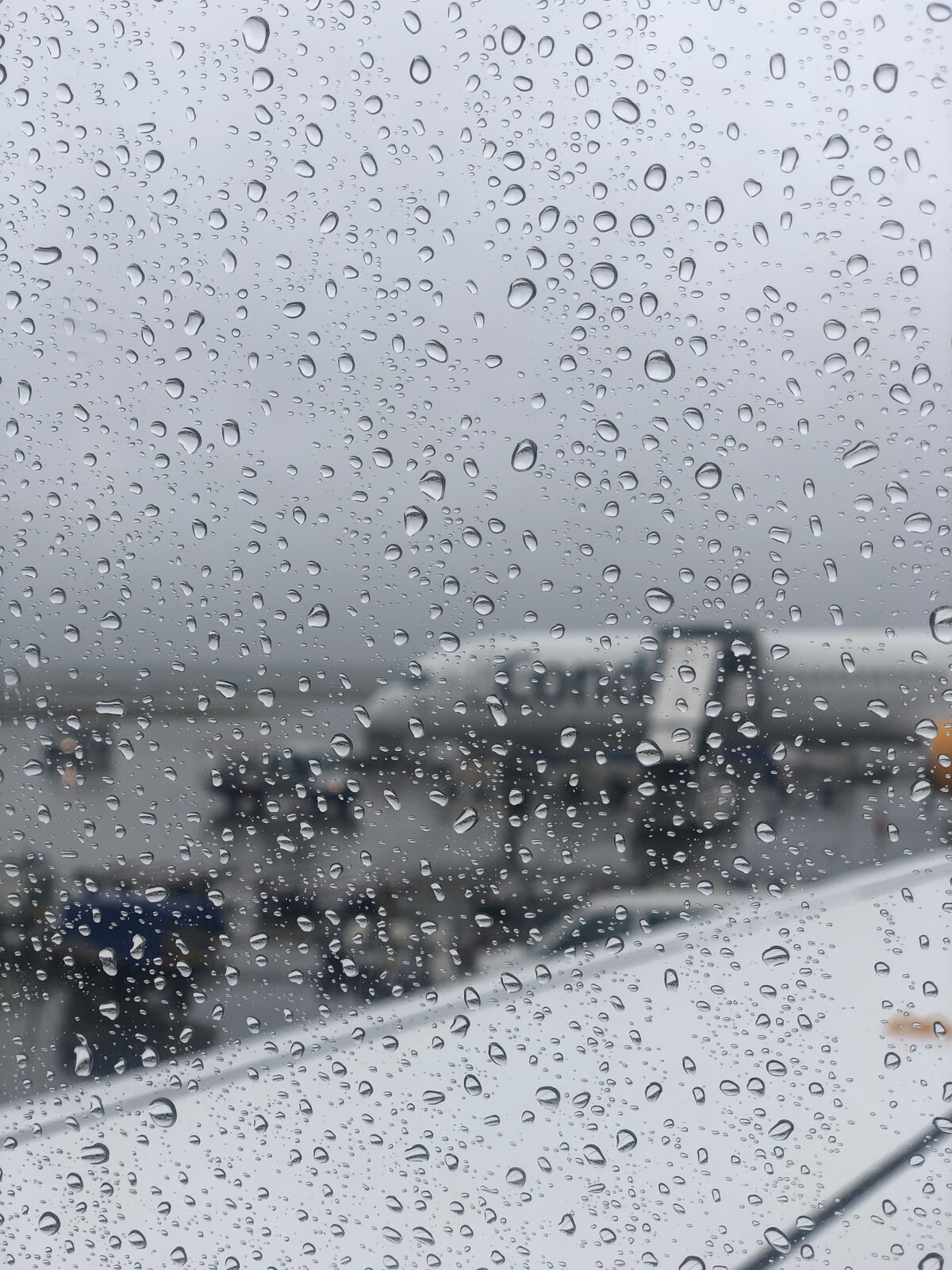
Lesson 5 Independent practice.
In this lesson I offer you several references to choose from for independent work. Remember that it is your own choice of tone, color, composition, arrangement of drops that will be able to consolidate the skills acquired in the course. I wish you good luck and success!

Paints
Above are the colors and palette of Anastasia with analogues in the Nevskaya Palitra. But remember that you can use your palette if you know it and are confident in it, taking into account only the comments on the use of warm and cool colors that Anastasia always makes during the lesson.
COURSE MATERIALS
Brushes
- Goat flute 30-40 cm
- Large synthetic / squirrel mix / calligraphy brush
- Light synthetic for details
- Flat wiping brush
- Fan brush for correcting mistakes
- Synthetic masking fluid brush
Paper
For this course you will need 100% cotton cotton paper
(it is advisable not to use Saunders Waterford, as we will be working in the rubbing technique, and this paper does not allow this). Of course, you can use any thick watercolor paper you are familiar with, but keep in mind that the effects may differ from Anastasia’s work.
Format no less than 30x40 cm
Preferably 38x56 cm, otherwise the effect of drawing drops on a small format will not be the same.
Other materials
- masking fluid (НП, Pebeo, Winsor& Newton? Sennelier)
- Melamine sponge
- A plastic tablet no smaller than your paper size
- pencil 2 В
- eraser
- water container
- paper napkins
Creating your own works
The main goal of the course is to explain the principles of working in watercolor techniques with a new topic, which will give you your own freedom in drawing. You will not just copy the work of the teacher, but will learn creative thinking.

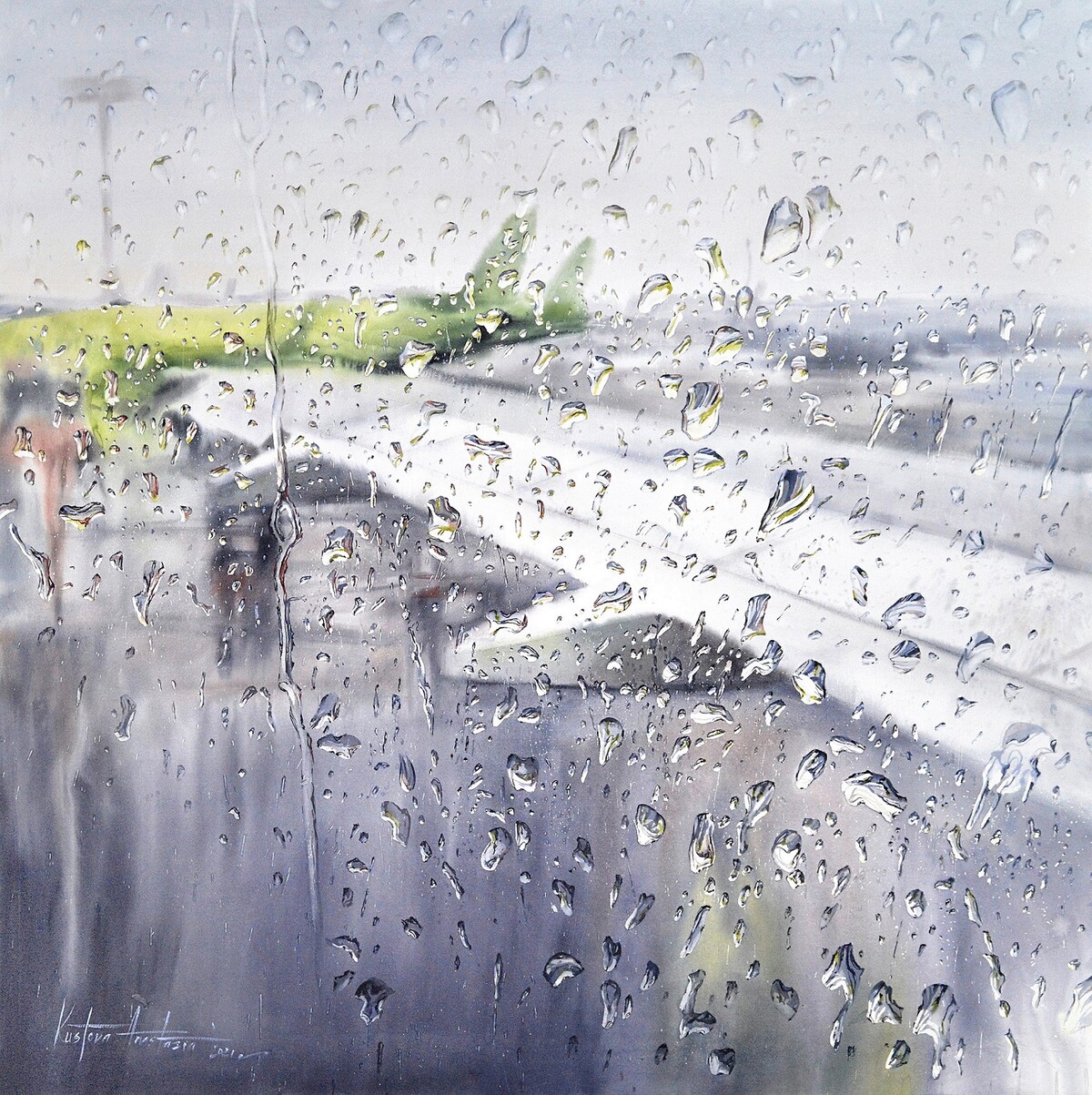
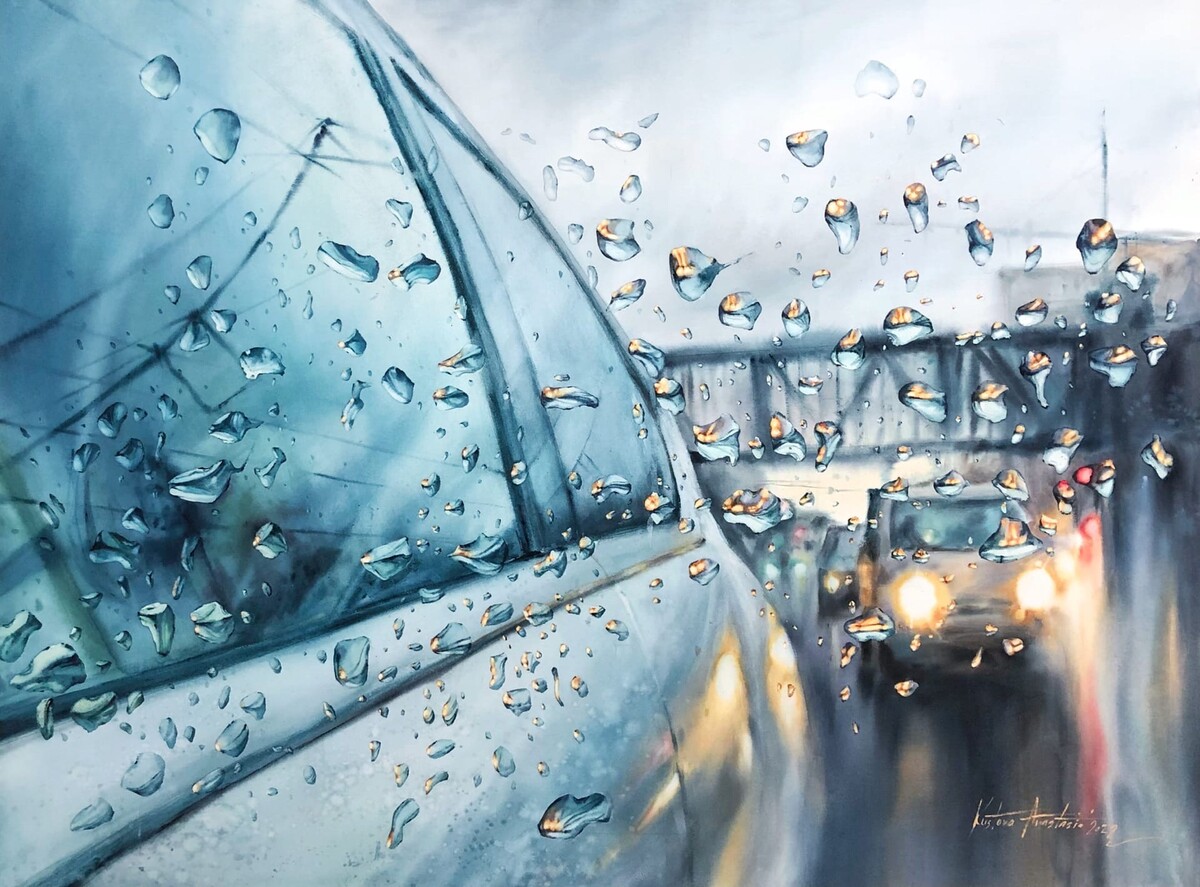
WORKS OF COURSE PARTICIPANTS
7990₽ = 51 455,6₸ = 100,92$ = 88,39€
ACCORDING TO THE STATUS OF THE RATE AS OF 06/09/2025
PAY ATTENTION! DUE TO THE FEATURES OF THE PAYMENT SYSTEM, PAYMENT CAN BE MADE IN KAZAKHSTAN TENGE
7990₽
2 theoretical lessons + 3 practical ones (more than 10 hours of training videos)
IF YOU HAVE ANY QUESTIONS, PLEASE USE THE FEEDBACK FORM BELOW
OR EMAIL info@art-kustova-school.com




